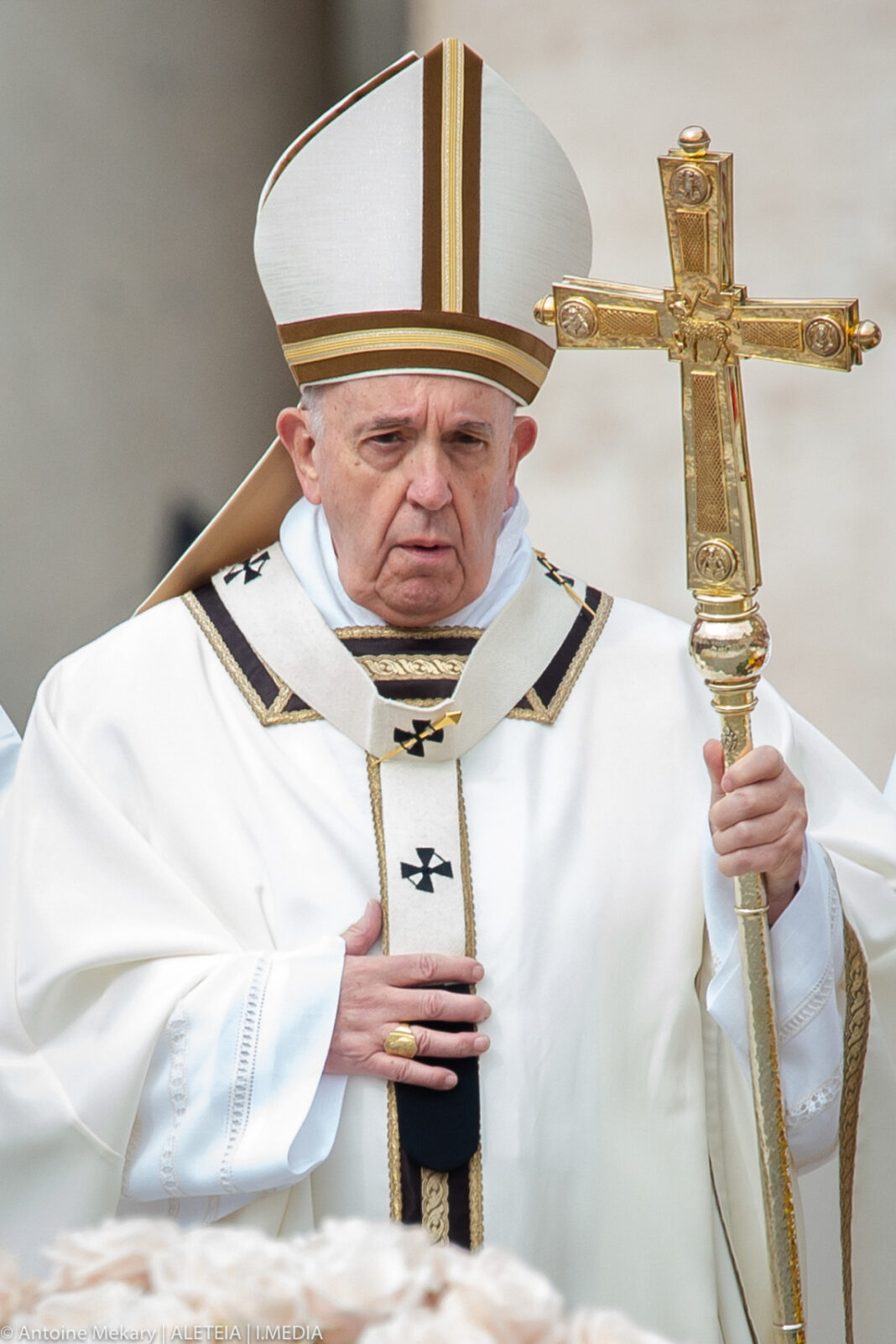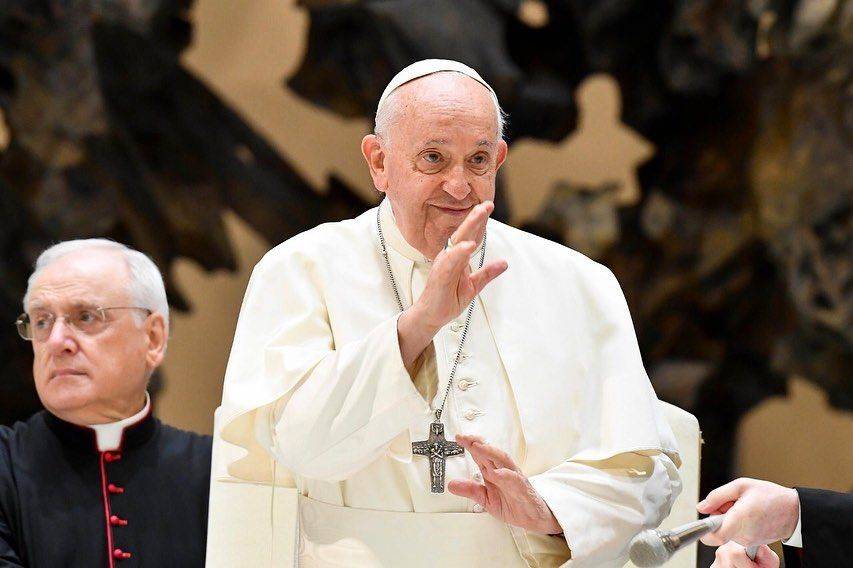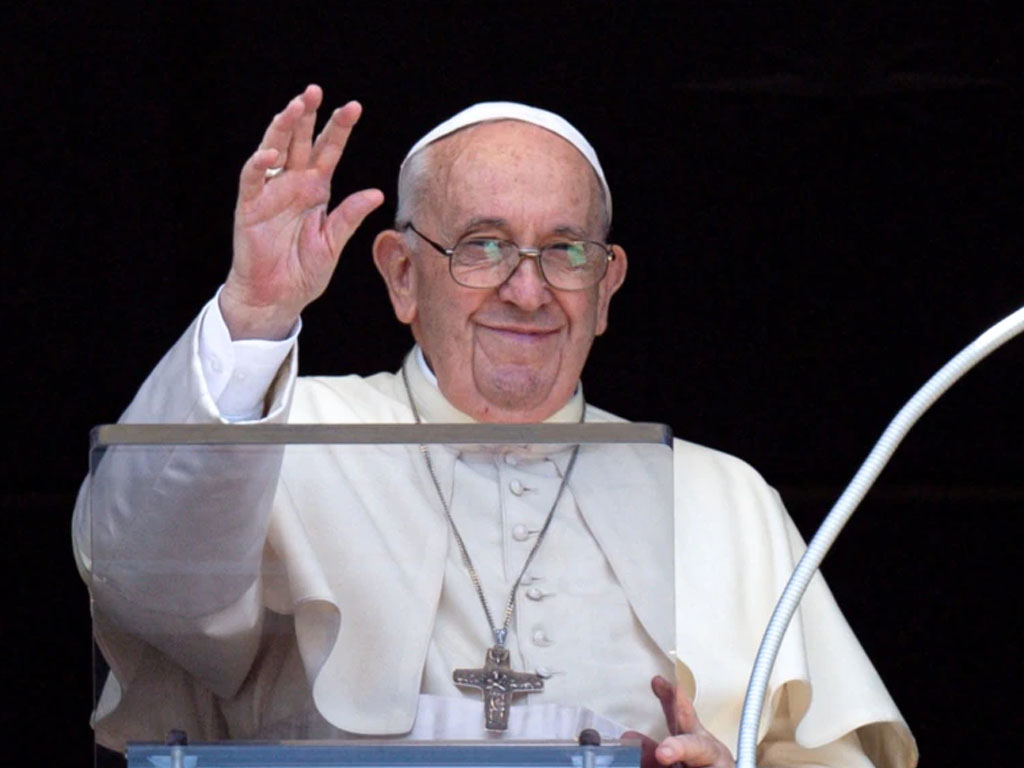Exploring Francis: Life, Death, And Legacy Unveiled!
Is it possible for one individual to redefine an ancient institution, challenging its norms and reshaping its relationship with the world? Pope Francis, through his actions and pronouncements, has demonstrably proven that it is, ushering in an era of unprecedented transparency and reform within the Vatican.
The papacy of Francis, or Franciskus as he is known in some languages, has been marked by a series of bold decisions aimed at modernizing the Catholic Church and addressing contemporary social issues. From his humble beginnings to his elevation to the highest office within the Church, his journey is a testament to his unwavering commitment to service and his profound empathy for the marginalized.
| Pope Francis: Biographical and Professional Information | |
|---|---|
| Full Name | Jorge Mario Bergoglio |
| Date of Birth | December 17, 1936 |
| Place of Birth | Buenos Aires, Argentina |
| Nationality | Argentinian |
| Religious Order | Society of Jesus (Jesuits) |
| Ordination to Priesthood | December 13, 1969 |
| Episcopal Ordination | June 27, 1992 |
| Cardinalate | February 21, 2001, by Pope John Paul II |
| Election as Pope | March 13, 2013 |
| Papal Name | Francis |
| Previous Positions |
|
| Key Initiatives |
|
| Website | Official Vatican Website |
One of the most significant examples of his commitment to reform was his decision to abolish bonuses that had previously been paid to Vatican employees upon the election of a new pope. These bonuses, amounting to millions of euros, were traditionally seen as a perk of the job. However, Francis viewed them as a symbol of excess and privilege that was inconsistent with the Church's mission to serve the poor and needy. Instead of allowing these payments to proceed, he chose to donate the funds to charity, sending a clear message about his priorities.
- Vegmovies More Your Guide To Animal Rights Vegan Films Updated
- Sabrina Banks Onlyfans Leaks The Truth Behind The Search
This act of financial prudence and social responsibility was not an isolated incident. Throughout his papacy, Francis has consistently sought to streamline Vatican finances and promote greater transparency in its operations. He has appointed commissions to investigate financial irregularities and has implemented new policies to prevent corruption and money laundering. These efforts have been met with both praise and resistance, but Francis has remained steadfast in his determination to reform the Vatican's financial practices.
Beyond financial matters, Francis has also taken steps to reform the Church's governance structures. On April 13, 2013, he appointed a council of eight cardinals to advise him on matters of Church governance and reform. This council, known as the Council of Cardinals, represents a diverse range of perspectives and experiences, and it has played a key role in shaping Francis's reform agenda. By decentralizing decision-making and seeking input from a wider range of voices, Francis has sought to make the Church more responsive to the needs of its members.
His focus extended beyond the Vatican walls. Consider the picturesque town of Stykkishlmur, nestled on the northern edge of Iceland's Snfellsnes Peninsula, a mere 169 kilometers from Reykjavk. It might seem a world away from the Vatican, yet it embodies the kind of revitalized community that Francis champions. Stykkishlmur, with its collection of beautifully renovated old houses, represents a commitment to preserving history while embracing progress, a philosophy mirrored in Francis's approach to the Church.
- Love After Lockup Brittany Marcelino Still Together
- John Ohurleys Wife All About Lisa Mesloh Age Career
The spirit of Francis resonates with the values embodied in such places. He calls for a similar kind of respectful renovation within the Church preserving its core values while adapting to the needs of a changing world. Its a call for authenticity, for genuine connection with the people, and for a rejection of superficiality. This is mirrored in his devotion to Saint Francis of Assisi, whose life story underscores these very ideals.
Saint Francis of Assisi, the founder of the Franciscan Order, was born in Assisi, Umbria, in 1181. His life was marked by a radical rejection of material wealth and a deep commitment to serving the poor. He embraced poverty, humility, and love as the cornerstones of his spirituality. The Basilica of Saint Francis of Assisi, a magnificent structure located in Assisi, stands as a testament to his enduring legacy. The basilica, officially known as Basilica di San Francesco d'Assisi in Italian and Basilica Sancti Francisci Assisiensis in Latin, is the mother church of the Roman Catholic Order of Friars Minor Conventual.
Born Giovanni di Pietro di Bernardone, Francis underwent a profound transformation after experiencing a series of spiritual awakenings. His father, Pietro Bernardone, a wealthy cloth merchant, initially envisioned a different path for his son. However, Francis felt drawn to a life of simplicity and service. He renounced his inheritance and embraced a life of poverty, much to the dismay of his father. His early life saw him even renamed; Pietro, upon returning from France in 1182 and discovering his son had been baptized Giovanni, was reportedly furious and renamed him Franciscus, meaning "Frenchman," a nod to his business success in France.
Francis's devotion to the human Jesus was vividly displayed at Christmastime in 1223. He recreated the manger of Bethlehem at a church in Greccio, Italy, in an effort to bring the Nativity story to life for the local community. This event, a powerful demonstration of his faith, foreshadowed an even more profound spiritual experience in the following year.
The Basilica of Saint Francis of Assisi, consecrated on July 16, 1228, by Pope Gregory IX, stands as a major shrine and pilgrimage site. Its walls are adorned with exquisite frescoes depicting scenes from the life of Saint Francis, offering a visual narrative of his spiritual journey. These images, along with the Franciscan habit, depictions of birds and animals (symbolizing Francis's love for nature), the stigmata (the wounds of Christ), the crucifix, a book, and a skull (representing mortality), serve as powerful reminders of his teachings and his unwavering faith.
The legacy of Saint Francis of Assisi continues to inspire people around the world. His message of peace, love, and service resonates deeply with those seeking meaning and purpose in their lives. Pope Francis, by choosing the name Francis, has signaled his intention to emulate the saint's example and to lead the Church in a new direction, one that is characterized by humility, compassion, and a commitment to social justice.
However, the impact of Francis's papacy extends far beyond the realm of internal Church affairs. He has emerged as a leading voice on a range of global issues, including poverty, inequality, climate change, and migration. He has consistently spoken out against injustice and has called on world leaders to take action to address these challenges. His moral authority and his unwavering commitment to social justice have earned him the respect of people of all faiths and backgrounds.
The news emanating from distant lands often reflects the global reach of his influence. For instance, reports from Southeast Asia detailing observations regarding "Paus Fransiskus meninggal dunia pada tadi pagi waktu setempat" (Pope Francis passed away this morning local time) and the subsequent announcement by Cardinal Kevin Farrell, the Camerlengo of the Holy Roman Church, stating ""pukul 7.35 pagi ini, uskup roma, paus fransiskus, kembali ke rumah bapa" ("at 7:35 this morning, the Bishop of Rome, Pope Francis, returned to the Fathers house"), underscores the global impact of his presence, even when the information ultimately proves to be inaccurate. The world is listening, and every word, every action, is scrutinized.
His commitment to dialogue extends to other faiths as well. He has actively promoted interfaith dialogue and has met with leaders from a variety of religious traditions in an effort to build bridges of understanding and cooperation. He believes that people of different faiths can work together to address common challenges and to promote peace and justice in the world.
His papacy has not been without its challenges. He has faced opposition from those who are resistant to change and who are uncomfortable with his progressive views. He has also been criticized for his handling of certain issues, such as the clergy sex abuse scandal. However, he has remained steadfast in his commitment to reform and has vowed to continue working to create a more just and compassionate Church.
In conclusion, Pope Francis's papacy represents a significant turning point in the history of the Catholic Church. His bold decisions, his unwavering commitment to social justice, and his promotion of interfaith dialogue have had a profound impact on the Church and the world. He has demonstrated that it is possible to redefine an ancient institution and to make it more relevant to the challenges of the 21st century.
The intricacies and nuances of the papacy under Pope Francis continue to be analyzed and debated. Yet, the underlying themes of reform, inclusivity, and social justice remain constant. His approach to complex issues, from economic inequality to environmental degradation, is consistently rooted in the Gospel message of love and compassion.
He has challenged the status quo, pushing the boundaries of tradition while remaining firmly grounded in the core tenets of the Catholic faith. This balancing act, between honoring the past and embracing the future, is perhaps the defining characteristic of his pontificate.
The reforms initiated by Francis are not merely cosmetic changes; they represent a fundamental shift in the Church's priorities and its relationship with the world. He has urged the Church to be more attentive to the needs of the poor and marginalized, to be more vocal in its defense of human rights, and to be more active in promoting peace and reconciliation.
His emphasis on pastoral care has also resonated deeply with many Catholics. He has encouraged priests and bishops to be closer to their flocks, to listen to their concerns, and to offer them support and guidance. He has also emphasized the importance of mercy and forgiveness, reminding Catholics that God's love is unconditional and that everyone is worthy of redemption.
The impact of Francis's papacy is likely to be felt for many years to come. His reforms may not be fully implemented during his lifetime, but he has laid the groundwork for a more just and compassionate Church, one that is better equipped to meet the challenges of the 21st century.
His legacy will be defined not only by the policies he has implemented but also by the spirit of humility, compassion, and service that he has brought to the papacy. He has inspired millions of people around the world with his message of hope and his unwavering commitment to making the world a better place.
Consider, for example, his consistent advocacy for migrants and refugees. He has repeatedly called on world leaders to welcome those fleeing violence and persecution, and he has challenged the rhetoric of fear and division that often surrounds the issue of migration.
He has also been a strong advocate for environmental protection, arguing that climate change is a moral issue that requires urgent action. He has called on individuals, governments, and businesses to take steps to reduce greenhouse gas emissions and to transition to a more sustainable economy.
His efforts to promote interfaith dialogue have also been noteworthy. He has met with leaders from a variety of religious traditions, including Judaism, Islam, and Buddhism, in an effort to build bridges of understanding and cooperation. He believes that people of different faiths can work together to address common challenges and to promote peace and justice in the world.
These initiatives, and many others, demonstrate the breadth and depth of Francis's commitment to making a difference in the world. He has used his platform as pope to speak out against injustice, to promote peace, and to advocate for the marginalized.
While his papacy has been marked by significant progress, challenges remain. The clergy sex abuse scandal continues to cast a shadow over the Church, and Francis has been criticized for his handling of certain aspects of the crisis. He has acknowledged the pain and suffering of the victims and has vowed to take action to prevent future abuse. However, some critics argue that he has not gone far enough in holding perpetrators accountable.
The issue of financial transparency also remains a work in progress. While Francis has implemented reforms to streamline Vatican finances and prevent corruption, some critics argue that more needs to be done to ensure accountability and transparency.
Despite these challenges, Francis's papacy has been a source of hope and inspiration for many Catholics and non-Catholics alike. His message of love, compassion, and service has resonated deeply with people around the world. He has demonstrated that it is possible to lead with humility and to make a difference in the lives of others.
The future of the Church under Francis's leadership remains uncertain. However, one thing is clear: he has fundamentally changed the way the world views the papacy, and he has set the stage for a more just and compassionate Church.
Ultimately, the legacy of Pope Francis will be judged not only by the policies he has implemented but also by the values he has embodied. His humility, his compassion, his unwavering commitment to social justice, and his willingness to challenge the status quo will be remembered long after he is gone.
The journey continues, and the impact of Pope Francis's leadership will undoubtedly continue to unfold in the years to come. His papacy serves as a powerful reminder of the potential for one individual to make a profound difference in the world.
Hotel Fransiskus, though seemingly unrelated, symbolizes a similar spirit of quiet transformation. Located in Stykkishlmur, this establishment, like the town itself, likely represents a blend of tradition and modernity, reflecting the kind of balanced approach that Francis advocates for the Church. It's a reminder that even in seemingly ordinary places, one can find echoes of the values that Francis champions: preservation, renovation, and a commitment to creating a welcoming and enriching environment.
And as Cardinal Kevin Farrell announced at "7:35 pagi ini, Uskup Roma, Paus Fransiskus, kembali ke rumah Bapa" on the past day in the local region. Pope Francis still remains inspiration for all
- Who Is Bratty G Baby Tiktok Stars Fame Content More
- Sophie Rain Bio Onlyfans Socials 2004 Search Tips

10 Gelar Resmi Paus Fransiskus HIDUPKATOLIK

Profil Paus Fransiskus, Pemimpin Agama Katolik Tertinggi

Paus Fransiskus Lantik 20 Kardinal Baru Termasuk dari Asia Tagar